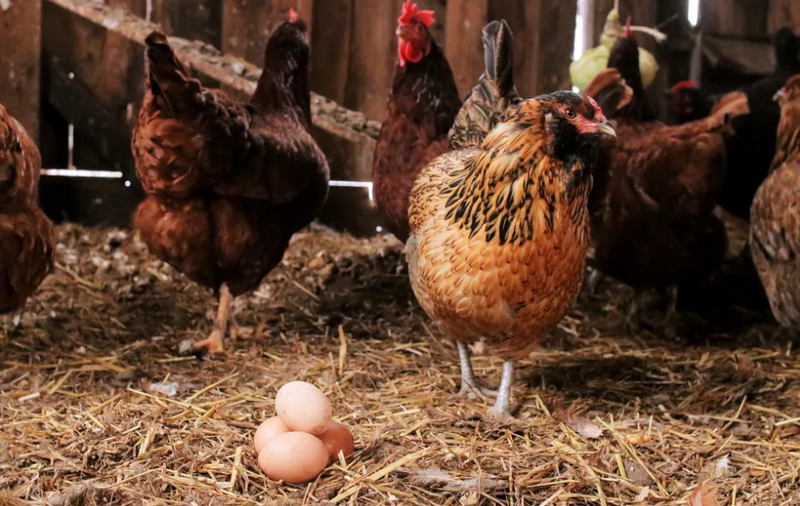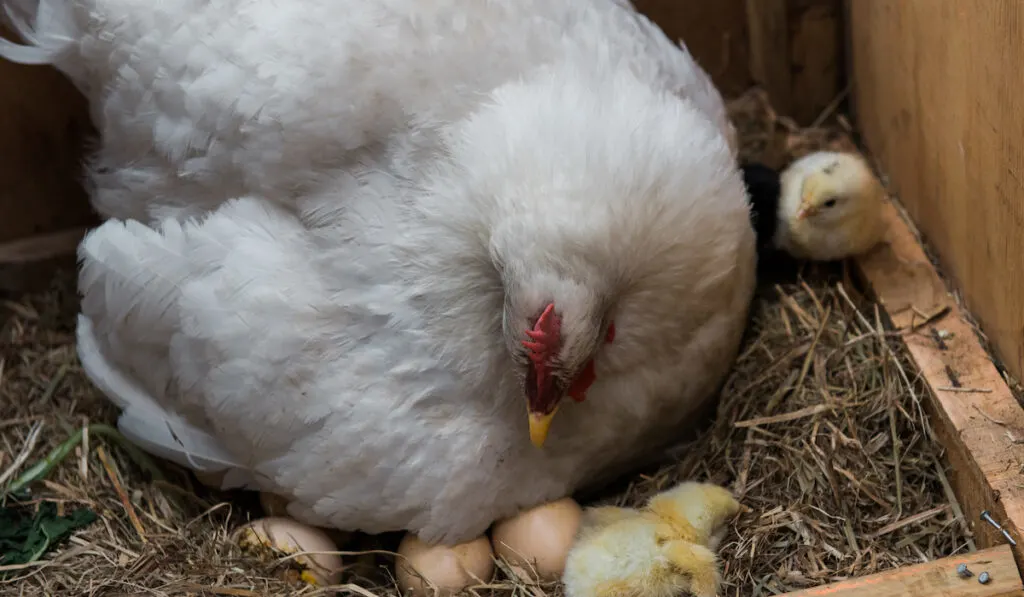Do Hens Produce Eggs Without A Rooster? A Comprehensive Guide
Ever wondered if hens can lay eggs without a rooster hanging around? Well, buckle up, because we’re diving deep into the world of poultry and egg production. This isn’t just about chickens; it’s about understanding how nature works, what science says, and why this topic matters to you—whether you’re a backyard chicken enthusiast or simply curious about where your eggs come from.
Let’s be honest, a lot of people think that hens need a rooster to lay eggs, but that’s not entirely true. Hens are natural egg machines, and they don’t necessarily need a rooster to get the job done. So, why the confusion? Stick around, and we’ll break it down for you in simple terms.
In this guide, we’ll explore everything you need to know about egg production, the role of roosters, and some fun facts about chickens that’ll make you look at them in a whole new light. Ready? Let’s dive in!
Here’s a quick table of contents to help you navigate through this comprehensive guide:
- Biography of Hens
- Do Hens Lay Eggs Without a Rooster?
- The Biology Behind Egg Production
- Fertilized vs. Unfertilized Eggs
- How Often Do Hens Lay Eggs?
- Factors Affecting Egg Production
- Nutritional Needs for Egg-Laying Hens
- Common Myths About Egg Production
- The Role of Roosters in Egg Production
- Health Benefits of Eggs
- Tips for Maximizing Egg Production
Biography of Hens
Before we dive into the nitty-gritty of egg production, let’s take a moment to appreciate our feathered friends. Hens are fascinating creatures, and understanding their biology can help us better understand their role in egg production.
| Fact | Detail |
|---|---|
| Name | Hen (female chicken) |
| Lifespan | 8-10 years (depending on care) |
| Egg Laying Age | 18-24 weeks old |
| Average Egg Production | 250-300 eggs per year |
| Diet | Grains, vegetables, insects, and specialized feed |
Hens are domesticated birds that have been bred for centuries for their eggs and meat. They are social animals and thrive in groups, making them perfect for backyard farming or large-scale operations. Now, let’s move on to the main event!
Do Hens Lay Eggs Without a Rooster?
Short answer? Yes, they do. Hens don’t need a rooster to lay eggs. They will continue to produce eggs regardless of whether a rooster is present. The presence of a rooster only affects the fertilization of the eggs, not the actual production process. So, if you’re raising hens for eggs, you don’t need to worry about adding a rooster to the mix unless you want to hatch baby chicks.
Why This Matters
Understanding this fact is crucial for anyone interested in backyard farming or sustainable living. Many people assume that hens need a rooster to lay eggs, which can lead to unnecessary complications. Knowing that hens can lay eggs on their own simplifies the process and reduces the need for additional animals.
The Biology Behind Egg Production
So, how exactly do hens produce eggs? It’s a fascinating process that involves several stages:
- Ovulation: The hen’s ovary releases a yolk into the oviduct.
- Albumen Formation: As the yolk travels through the oviduct, it is surrounded by albumen (egg white).
- Shell Formation: The eggshell is formed in the uterus, taking about 20 hours to complete.
- Laying: Finally, the egg is laid, usually in the morning.
This process happens naturally, without the need for a rooster. It’s a marvel of biology that allows hens to produce eggs consistently, making them one of the most efficient egg-laying animals on the planet.
Fertilized vs. Unfertilized Eggs
Now, here’s where things get interesting. While hens can lay eggs without a rooster, the presence of a rooster determines whether the eggs are fertilized or not:
- Fertilized Eggs: These eggs have the potential to develop into chicks if incubated properly.
- Unfertilized Eggs: These are the eggs you typically find in grocery stores. They are safe to eat and contain no embryo.
It’s important to note that fertilized eggs are not harmful to consume. In fact, many cultures consider them a delicacy. However, if you’re not planning to hatch chicks, there’s no need for a rooster in your flock.
How Often Do Hens Lay Eggs?
The frequency of egg-laying depends on several factors, including the hen’s age, breed, diet, and environment. On average, a healthy hen can lay about 5-6 eggs per week. However, this number can vary depending on the conditions:
- Breed: Some breeds, like the White Leghorn, are known for their high egg production, while others, like the Orpington, lay fewer eggs but are better suited for meat production.
- Age: Younger hens tend to lay more eggs than older ones. Egg production typically peaks at around 1-2 years of age.
- Season: Hens lay more eggs during the warmer months when there’s more daylight. In the winter, egg production may decrease due to shorter days and colder temperatures.
Understanding these factors can help you maximize egg production and ensure your hens remain healthy and happy.
Factors Affecting Egg Production
Several factors can influence a hen’s ability to lay eggs:
- Lighting: Hens need about 14-16 hours of light per day to maintain optimal egg production. Supplemental lighting can be used during the winter months to keep production consistent.
- Diet: A balanced diet rich in protein, calcium, and essential nutrients is crucial for healthy egg production. Hens that are malnourished may lay fewer or smaller eggs.
- Stress: Stress can significantly impact egg production. Make sure your hens have a safe, comfortable environment free from predators and disturbances.
- Health: Regular check-ups and vaccinations can help prevent diseases that may affect egg production.
By addressing these factors, you can create the ideal conditions for your hens to thrive and produce eggs consistently.
Nutritional Needs for Egg-Laying Hens
Proper nutrition is key to maintaining healthy egg production. Hens require a diet rich in:
- Protein: Essential for egg formation and overall health.
- Calcium: Necessary for strong eggshells. Laying hens should have access to calcium supplements like oyster shells.
- Vitamins and Minerals: A balanced diet ensures that hens receive all the nutrients they need for optimal egg production.
Feeding your hens a high-quality, specialized feed can make a big difference in their egg-laying ability. Always consult with a veterinarian or poultry expert to ensure your hens are getting the right nutrients.
Common Myths About Egg Production
There are several myths surrounding egg production that can confuse even the most experienced chicken owners:
- Myth #1: Hens Need a Rooster to Lay Eggs. As we’ve already discussed, this isn’t true. Hens will lay eggs with or without a rooster.
- Myth #2: All Eggs Are the Same. The nutritional value and taste of eggs can vary depending on the hen’s diet and living conditions.
- Myth #3: Eggs Can’t Be Eaten If They’re Fertilized. Fertilized eggs are perfectly safe to eat unless they’ve been incubated long enough for an embryo to develop.
Dispelling these myths can help you make informed decisions about your flock and egg production.
The Role of Roosters in Egg Production
While roosters aren’t necessary for egg production, they do play an important role in a flock:
- Fertilization: Roosters are needed to fertilize eggs if you want to hatch chicks.
- Protection: Roosters are natural protectors and will defend their flock from predators.
- Hierarchy: Roosters help maintain order within the flock, reducing stress and conflict among hens.
However, it’s worth noting that roosters can be noisy and aggressive, so they may not be suitable for all situations. If you’re raising hens for eggs only, you can skip the rooster altogether.
Health Benefits of Eggs
Eggs are not only delicious but also packed with nutrients that are beneficial for your health:
- Protein: Eggs are a great source of high-quality protein, which is essential for muscle repair and growth.
- Vitamins: Eggs contain vitamins A, D, and B12, which support vision, bone health, and nerve function.
- Minerals: Eggs are rich in minerals like iron and zinc, which are important for blood health and immune function.
Incorporating eggs into your diet can provide numerous health benefits, making them a valuable addition to any meal.
Tips for Maximizing Egg Production
Here are some tips to help you get the most out of your hens:
- Provide Adequate Space: Hens need enough room to move around and stay comfortable.
- Ensure Proper Ventilation: Good airflow in the coop helps prevent respiratory issues and keeps hens cool in the summer.
- Offer Fresh Water: Hens need access to clean, fresh water at all times to stay hydrated and healthy.
- Monitor Health Regularly: Keep an eye out for signs of illness or distress, and address any issues promptly.
By following these tips, you can create a healthy, productive environment for your hens and enjoy a steady supply of fresh eggs.
In conclusion, hens are amazing creatures capable of producing eggs without the need for a rooster. Understanding the biology behind egg production, the factors that affect it, and how to care for your hens can help you maximize their potential and enjoy the benefits of fresh, nutritious eggs. So, whether you’re a seasoned chicken keeper or just starting out, this guide has everything you need to know about hens and egg production.
Now, it’s your turn! Share your thoughts, ask questions, or leave a comment below. And if you found this guide helpful, don’t forget to share it with your friends and family. Happy farming, and keep those eggs rolling!
Tim Miller Children: A Deep Dive Into The Family Life Of The Iconic Director
Bionka: The Ultimate Guide To Unlocking Its Potential
Jey Uso Children: A Closer Look At His Family Life

Do Chickens Lay Eggs Without a Rooster? Chicken Breed Guide

Can Hens Lay Eggs Without A Rooster? The Hen's Loft

How Chickens Lay Eggs Without a Rooster Farmhouse Guide